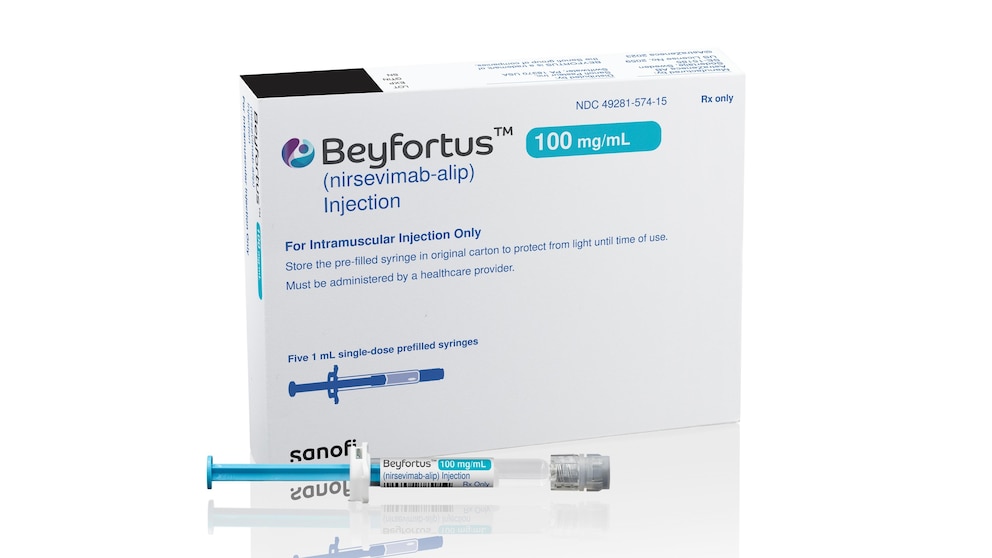
NEW YORK — A new shot for infants against RSV is in short supply, and U.S. health officials told doctors they should prioritize giving the drug to babies at the highest risk of severe disease.
Infants less than 6 months who have chronic lung disease or other underlying conditions should be given priority, the Centers for Disease Control and Prevention told doctors in a Monday evening advisory.
RSV, or respiratory syncytial virus, is a common cause of coldlike symptoms that can be dangerous for young children. A seasonal virus, it's being widely reported in the southern United States and is expected to continue to spread over the next month or two.
The new, one-time shot is a lab-made antibody that helps the immune system fight off the virus. Sold under the brand name Beyfortus, the drug was developed by AstraZeneca and Sanofi.
In July, the U.S. Food and Drug Administration approved it, and the next month the CDC recommended it for infants born just before or during the RSV season and for those less than 8 months old before the season starts. They also recommended a dose for some 8- to 19-months-olds at higher risk of a serious illness.
It comes in prefilled syringes in doses of 50 milligrams or 100 milligrams. The larger doses are for larger, heavier infants.
In a recent letter to state immunization managers, the CDC said there would be a pause on orders for the shots made through a program that pays for vaccines for poor and uninsured children. On Monday, the CDC put out a more general alert to U.S. doctors.
In a statement, Sanofi said demand — especially for the larger doses — "has been higher than anticipated.”
Indeed, there's not enough to protect all the kids who are eligible for the larger shots, health officials say. Supply of the smaller doses also may be limited during the current RSV season, CDC officials said. The CDC said doctors should not use two smaller doses on larger infants, so as to preserve the supply of those shots.
Some children may be eligible for an older RSV drug, palivizumab, agency officials said. That drug requires monthly injections.
Doctors also are being urged to try to persuade pregnant women to get a new vaccine designed to protect newborns from RSV. When that happens, the baby doesn't need the antibody drug.
___
The Associated Press Health and Science Department receives support from the Howard Hughes Medical Institute’s Science and Educational Media Group. The AP is solely responsible for all content.
Sourse: abcnews.go.com






